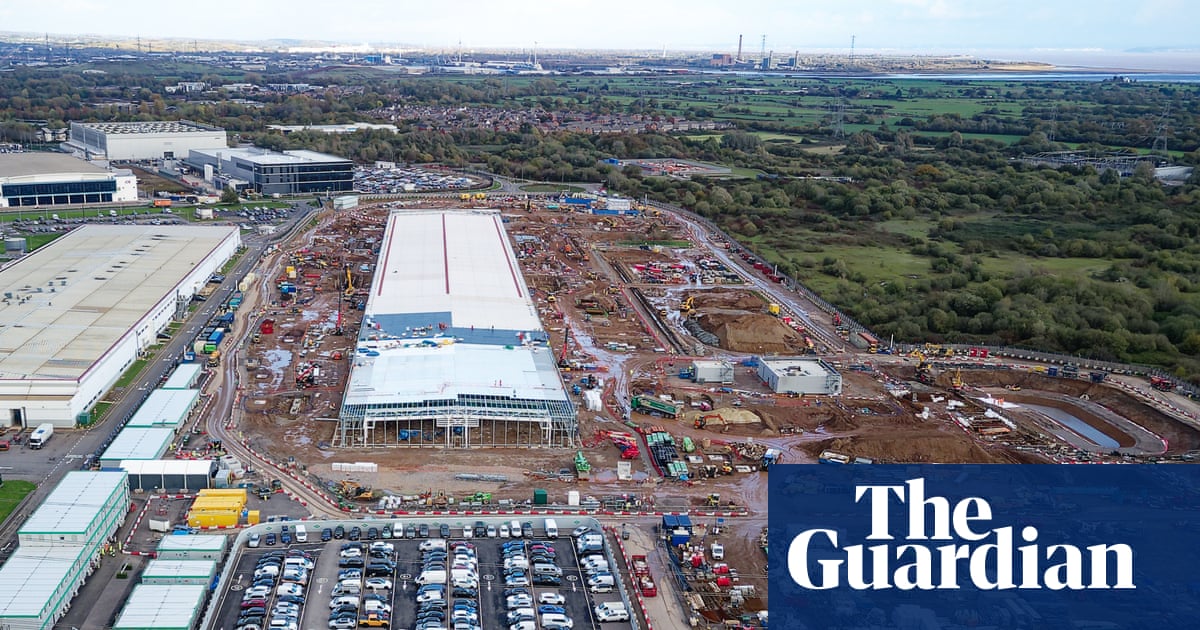4 Nov 2025, 14:59 | Updated: 4h ago
 Michael Burry, who was depicted by Christian Bale in the film The Big Short, has gambled $1.1bn (£840m) on a fall in the shares of chipmaker Nvidia and software company Palantir.
Picture:
Getty
Michael Burry, who was depicted by Christian Bale in the film The Big Short, has gambled $1.1bn (£840m) on a fall in the shares of chipmaker Nvidia and software company Palantir.
Picture:
Getty
The investor who bet against the US housing market in the run-up to the 2007 financial crisis has now placed a significant wager on the collapse of the artificial intelligence (AI) boom.
Michael Burry, who was depicted by Christian Bale in the film The Big Short, has gambled $1.1bn (£840m) on falls in shares of chipmaker Nvidia and software company Palantir.
His prediction will raise concerns about a possible AI bubble, after the sector's value surged this year as firms invested heavily in the hope of seeing huge future earnings.
Read more: AI putting millions of Brits at risk of unvetted rogue traders, Checkatrade boss warns
Read more: AI isn’t coming for your job, it’s coming for your paperwork
Mr Burry returned to X last week to spread his warnings about a bubble, posting a picture of Bale's portrayal of him with the caption: "Sometimes, we see bubbles. Sometimes, there is something to do about it. Sometimes, the only winning move is not to play."
On Monday, he posted a chart titled "US tech capex [capital expenditure] growth is matching the tech bubble of 1999-2000" and another showing how growth in demand for cloud computing at major tech companies is slowing.
Scion Asset Management, Mr Burry’s investment firm, has now bought $912m worth of “put” contracts in Palantir and $187m of shares in Nvidia.
Puts give Scion the right to sell the stock at a specified price within a certain time period, allowing investors to profit from share price falls by buying stock during a dip and selling it at the higher predetermined price.
James Kardatzke, Quiver Quantitative co-founder, said: “Michael Burry has a history of making large bearish bets when he perceives there to be a bubble, most notably prior to the housing market crash of 2008.
"This new disclosure suggests that he now believes that there is an AI bubble which is due to pop."
Mr Burry's most infamous bet saw him predict the collapse of America’s mortgage-backed securities (MBS) market.
The bursting of that bubble triggered the 2007 global financial crisis.
 Mr Burry's remarkable story was documented in Michael Lewis’s 2010 book The Big Short, which was later turned into a 2015 Oscar-winning film.
Picture:
Alamy
Mr Burry's remarkable story was documented in Michael Lewis’s 2010 book The Big Short, which was later turned into a 2015 Oscar-winning film.
Picture:
Alamy
His hugely controversial long-term $1bn bet started in 2005 and would eventually increase the value of his fund by 489 per cent by the time the system collapsed.
The details of this remarkable story was documented in Michael Lewis’s 2010 book The Big Short, which was later turned into a 2015 Oscar-winning film.
AI's transformative potential has excited investors and led to a huge surge in the stock prices of a handful of US tech companies.
Last week, Nvidia, which has become the chip-maker of choice for AI data centres, became the first publicly traded company in the world to surpass $5tn in value, making it worth more than the total GDP of Germany.
Palantir, which specialises in AI data analysis, has seen its stock rise by 400 per cent over the last year.
But these sky-high valuations may not be justified, with a report by the Massachusetts Institute of Technology (MIT) in August warning the vast majority of AI investments were yielding "zero returns" for business.
Concerns about a bubble were also expressed by Sam Altman, the chief executive of OpenAI, who said in the summer: “Are investors overexcited? My opinion is yes."
Investors have poured $161bn inon AI so far this year, PitchBook reports, with the lion's share of this eye-watering figure going to just 10 companies.
David Solomon, Goldman Sachs’ chief executive, said the majority of this capital would “turn out to not deliver returns”.
After news of Mr Burry's bet broke on Tuesday, Nvidia shares were down 2 per cent in pre-market trading.
Palantir’s stock price was almost 7 per cent lower before markets opened.
Scion's put contracts are listed in its 13F filing, a report that all institutions with at least $100m under management must file with the Securities and Exchange Commission (SEC).
The expiration date or the “strike price” that the fund has agreed to sell shares at have not been disclosed.
Palantir and Nvidia were contacted for comment.
.png)




